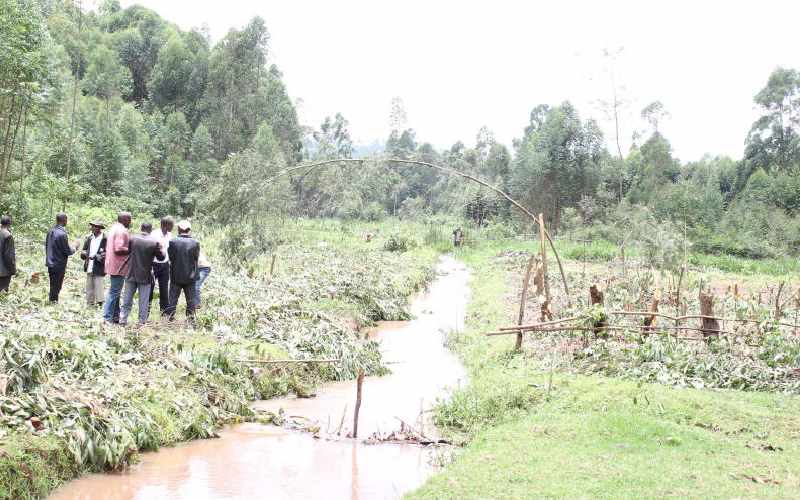×
The Standard e-Paper
Smart Minds Choose Us

Fourteen years after scientists from the International Centre for Research in Agroforestry (ICRAF) advised against planting of eucalyptus and pines on riparian land, many Kenyans with eucalyptus trees have continued to disregard the warning.
In 2006, ICRAF warned of the dangers of planting these type of trees on such areas as they were high water consumers and would lead to drying up of water sources.